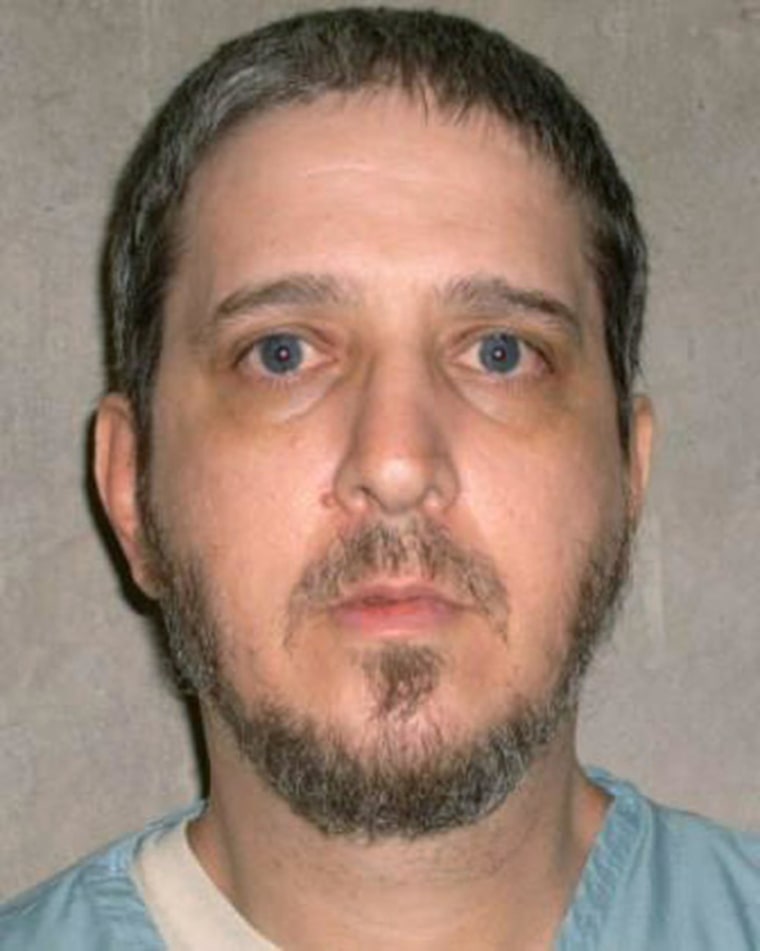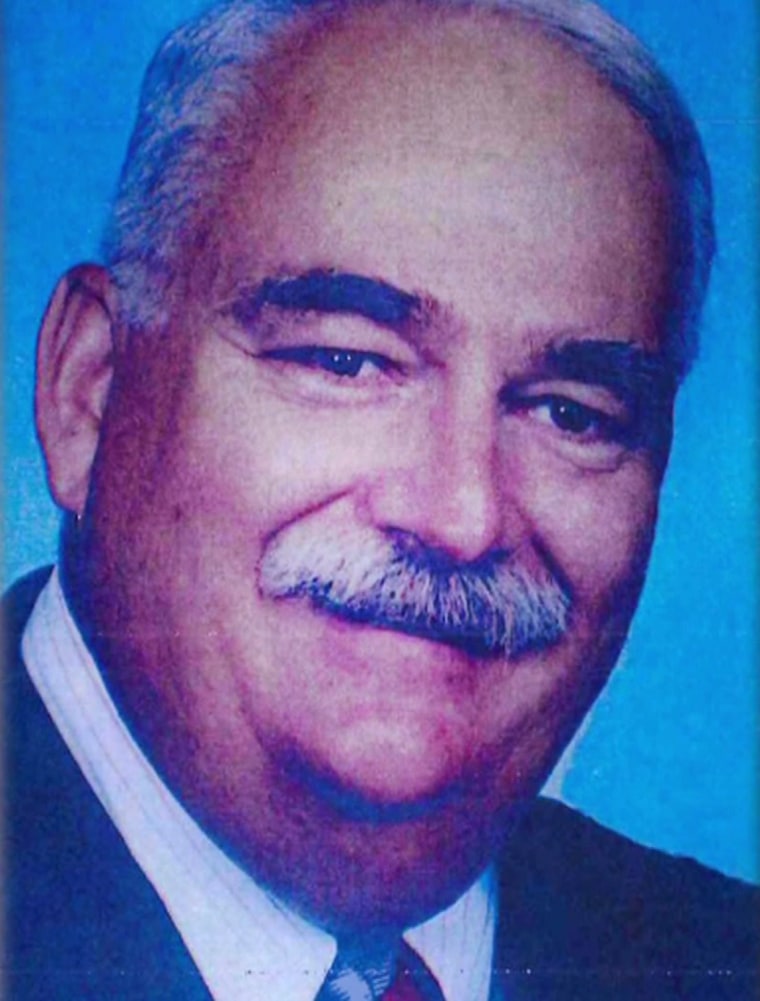Oklahoma Gov. Mary Fallin halted the execution of Richard Glossip at the last minute on Wednesday after prison officials tried to go forward with the wrong drugs, officials said.
The stunning announcement came about an hour after the U.S. Supreme Court refused to stop the execution of Glossip, whose case drew a call for mercy from Pope Francis earlier in the day. The execution was rescheduled for Nov. 6.
"Last minute questions were raised today about Oklahoma’s execution protocol and the chemicals used for lethal injection," Fallin said in a statement.

"After consulting with the attorney general and the Department of Corrections, I have issued a 37 day stay of execution while the state addresses those questions and ensures it is complying fully with the protocols approved by federal courts.”
Fallin did not got into detail, but did say that the state wanted to find out if it could use potassium acetate -- which is sometimes used as a food additive or in de-icing solutions -- in an execution. Usually, the third drug in Oklahoma's cocktail is potassium chloride, which stops the heart.
The state Attorney General's office provided more clarity, explaining that shortly before the execution, prison officials revealed they did not have the specific drugs called for in the execution protocol — which was upheld by the U.S. Supreme Court just a few months ago.
"It is unclear why, and extremely frustrating to the attorney general, that the Department of Corrections did not have the correct drugs to carry out the execution," said Aaron Cooper, a spokesman for AG Scott Pruitt.
He said Pruitt was heartbroken the victim's family had to endure another delay but "the most sobering and important duty for the state is to carry out the punishment of death.”
Robert Patton, the director of the Department of Corrections, refused to take questions from reporters and would not say why his agency had planned to use potassium acetate instead of potassium chloride.
"Potassium acetate is a food preservative, but today it was a Richard Glossip preservative because he is still alive," said Sister Helen Prejean, who is Glossip's spiritual advisor.
After the reprieve, Glossip's family gathered in a circle to pray and release balloons.
One of his lawyers, Dale Baich, released a statement blasting the state's handling of the process, saying the "hastily abandoned plans show what happens when states carry out executions in secrecy with unqualified execution team members and no public oversight."
It was the fourth stay of execution for Glossip, whose supporters include actress Susan Sarandon, Virgin boss Richard Branson and football coach Barry Switzer.
He was put on death row after being convicted of orchestrating the 1997 murder of his boss, Barry Van Treese, to cover up a theft, but insists that he is innocent.
Last winter, Glossip's execution was called off at the 11th hour when the U.S. Supreme Court agreed to hear his challenge to Oklahoma's lethal-injection drugs, but the justices eventually upheld the state's protocol.
Just two weeks ago, Glossip was hours away from being escorted to the execution chamber when a state appeals court halted the process so it could consider his claim that new evidence shows he was framed.
Then on Wednesday it was revealed that Pope Francis had sent a letter to Fallin, through a representative, asking her to commute the sentence to life in prison, saying it would "give clearer witness to the value and dignity of every person's life."
Fallin's office said she did not have the power to commute the sentence.
It appeared that Glossip had run out of time when the U.S. Supreme Court weighed in just before 3 p.m. local time (4 p.m. ET), declining to stop the execution.
But then more than an hour passed without witnesses being taken to the execution unit. A corrections official then abruptly appeared and told reporters that the execution was being called off and a new date of Nov. 6 had been set.
Oklahoma's execution protocols have been under scrutiny since last year's botched lethal injection of Clayton Lockett, who regained consciousness in the middle of the procedure and appeared to be in agony.

Glossip's lawyers mounted a challenge to one of the chemicals in the state's three-drug injection, and convinced the nation's top court to take a look — but ultimately lost the case.
More recently, Glossip's appeals have centered on his claim of innocence.
His conviction hinged largely on the testimony of the man who actually carried out the bludgeoning of Van Treese. That man, Justin Sneed, is serving a life sentence.
The defense says it has witnesses who back up their claim that Sneed acted alone, and that the state has tried to intimidate those witnesses by hitting them with probation violations.
Van Treese's family says they have no doubt that Glossip was involved in the murder to cover up a $10,000 embezzlement. They had no immediate comment on the latest stay of execution.
The activist group MoveOn.org, which organized a campaign of phone calls to Fallin's office and protested outside the Supreme Court on Tuesday night, said it was "relieved" by the surprise turn of events.
"Once again, Richard has come within minutes of being executed for a crime the record in the case makes clear he did not commit," the group said in a statement.
"And now, concerns about the state's lethal drug combination gravely underscore the ethical and moral necessity to abolish the death penalty."
